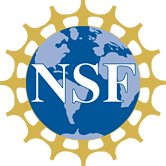A workshop on recent advances and developments in the
Java-DSP software will be conducted on January 30, 2013 at
the Goldwater Center room 409, Arizona State University
from 1 PM - 3PM.
The participants of this workshop will be exposed to the
utility of the Java-DSP education software
in multidisciplinary signal and data analysis
applications. Topics covered include the extensions of
Java-DSP to Earth Systems, Image Processing and
Communications. Furthermore, the iOS (iJDSP) and Android
(AJDSP) versions of the sofware will also be presented and
demonstrated during the workshop.
View the photo gallery.
Registration:
Registration
for the workshop is not required. Interested
participants may email sensip@asu.edu
to RSVP.Workshop Objectives:
The participants
of the workshop will:
- get introduced to
the basics of Java-DSP and understand how to setup basic
simulations.
-
understand the utility of Java-DSP in analyzing Earth systems
signals.
-
visualize basic image processing and OFDM simulations using
Java-DSP.
-
acquaint themselves with the Java-DSP mobile versions, the
AJDSP and the iJDSP.
- get
introduced to the sensor interfaces for AJDSP.
Audience:
The workshop is intended
for Electrical Engineering, Computer
Science, Geology and Earth Systems and other engineering faculty and instructors teaching
courses that involve signal and data analysis.
Organizers:
| Prof. Andreas Spanias, Arizona State University |
| Prof. Costas Pattichis,
University of Cyprus |
| Dr. Mahesh Banavar, Arizona State University |
Program:
1:00 PM
|
Introduction to Java-DSP: Jayaraman Thiagarajan
|
| 1:10 PM |
Earth Systems and imaging functions in Java-DSP:
Karthikeyan Ramamurthy |
1:20 PM
|
OFDM in
Java-DSP: Sai Zhang
|
| 1:30 PM
|
The Android JDSP (AJDSP) software: Suhas Ranganath |
1:40 PM
|
Sensor
Interface to AJDSP: Deepta Rajan
|
| 1:50 PM |
The iOS
JDSP (iJDSP) software: Girish Kalyanasundaram |
| 2:00 PM |
Comments
and Plans for Java-DSP in UCy - Dr. Costas Pattichis |
| 2:10 PM |
Students'
discussion with Dr. Pattichis |
The event is co-sponsored by NSF
(Award No. 0817596) and the SenSIP Center, Arizona State University.
|


